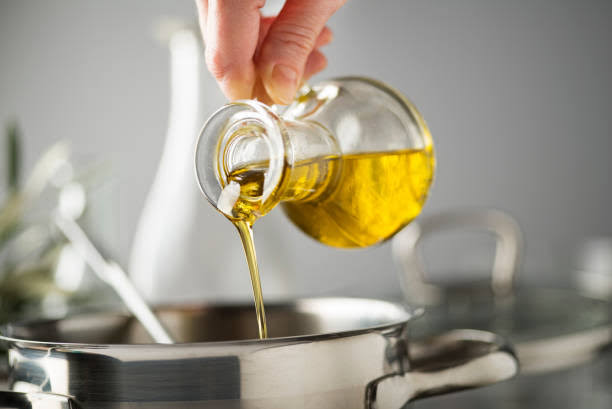Cold-Pressed vs. Virgin Coconut Oil: Which One is Better for You?

Cold-Pressed vs. Virgin Coconut Oil: Key Differences Explained
Coconut oil is a staple in many households, but with so many varieties available, it’s easy to get confused. Two popular types are cold-pressed coconut oil and virgin coconut oil. While both are considered natural and healthy, they have key differences in extraction methods, nutritional content, and usage. Let’s break it down.
What is Cold-Pressed Coconut Oil?
Cold-pressed coconut oil is extracted from dried coconut kernels (copra) using mechanical or hydraulic pressing at a controlled temperature (below 50°C). This ensures that the oil retains its natural nutrients and antioxidants while being free from chemicals and additives.
Key Features of Cold-Pressed Coconut Oil:
✔ Extracted from dried coconut (copra)
✔ No heat or chemicals used during extraction
✔ Retains natural aroma and flavor
✔ Rich in healthy fats and antioxidants
✔ Ideal for cooking, haircare, and skincare
Best Uses:
✅ Cooking (high smoke point, ideal for frying & sautéing)
✅ Skin & hair care (moisturizing, scalp nourishment)
✅ Oil pulling (oral health)
What is Virgin Coconut Oil?
Virgin coconut oil (VCO) is extracted from fresh coconut milk rather than dried copra. It undergoes a natural fermentation or cold-processing method, ensuring maximum retention of nutrients, lauric acid, and antioxidants. It is considered the purest form of coconut oil and is lighter in texture.
Key Features of Virgin Coconut Oil:
✔ Extracted from fresh coconut milk
✔ No heat, chemicals, or refining involved
✔ Higher in lauric acid (antibacterial & antiviral properties)
✔ More aromatic and lighter in texture
✔ Best for raw consumption and skincare
Best Uses:
✅ Consuming raw (direct intake for immunity)
✅ Skincare & baby care (gentle & nourishing)
✅ Haircare (deep conditioning)
Cold-Pressed vs. Virgin Coconut Oil: A Quick Comparison
| Feature | Cold-Pressed Coconut Oil | Virgin Coconut Oil |
|---|---|---|
| Extraction Process | Pressed from dried copra | Extracted from fresh coconut milk |
| Heat Exposure | No heat (below 50°C) | No heat (purest form) |
| Nutrient Retention | High | Highest |
| Lauric Acid Content | Moderate | High (antibacterial benefits) |
| Aroma & Taste | Strong coconut aroma | More natural and fresh coconut scent |
| Best for | Cooking, skincare, haircare | Raw consumption, baby care, skincare |
Which One Should You Choose?
Both cold-pressed and virgin coconut oils are excellent choices for a healthy lifestyle. However, if you are looking for:
✔ Best for Cooking: Go for cold-pressed coconut oil (higher smoke point).
✔ Best for Skin & Hair: Choose virgin coconut oil (lighter & more nourishing).
✔ For Raw Consumption & Ayurveda: Virgin coconut oil is the purest option.
For 100% natural, chemical-free coconut oils, check out Sutrakart for premium-quality cold-pressed and virgin coconut oil. 🚀


